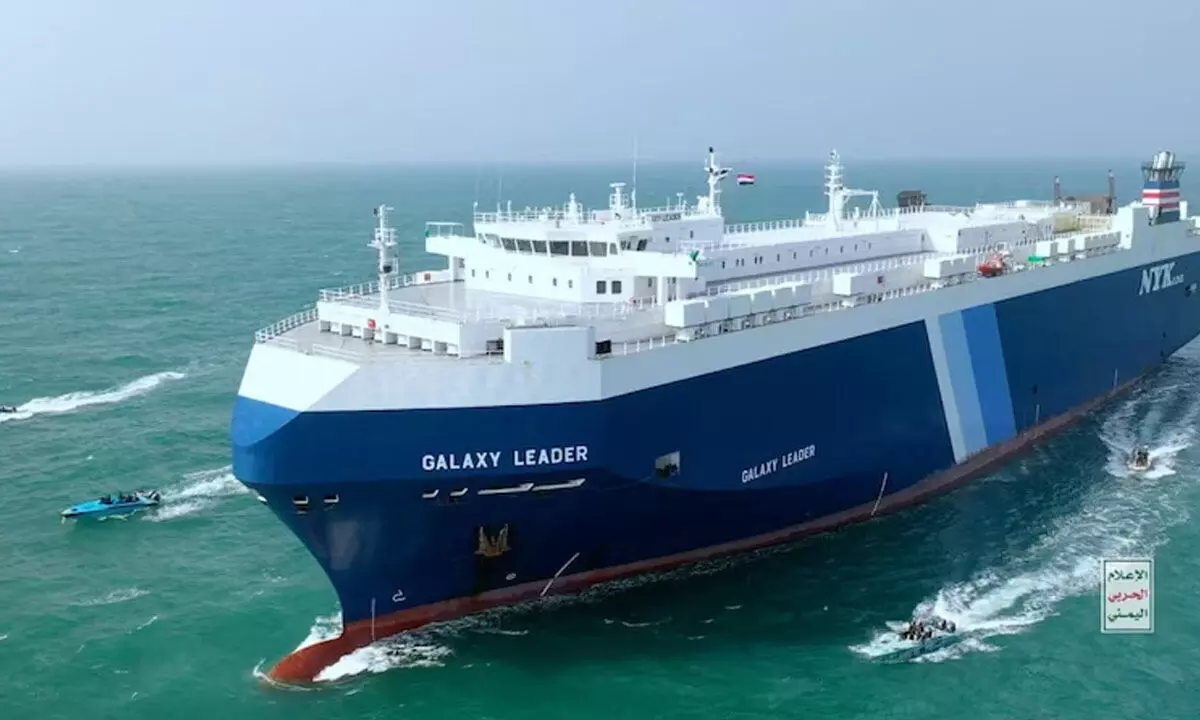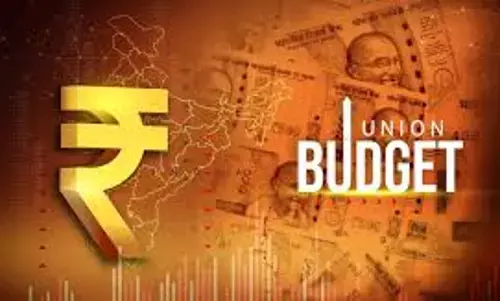Red Sea tensions will add to recessionary threat

In recent times, the global maritime industry as well as a number of nations are literally seeing red, following a spate of attacks on cargo ships passing through the Red Sea, an inlet of the Indian Ocean between Africa and Asia.
In recent times, the global maritime industry as well as a number of nations are literally seeing red, following a spate of attacks on cargo ships passing through the Red Sea, an inlet of the Indian Ocean between Africa and Asia. One of the world’s most densely packed shipping channels, Red Sea extends between the Mediterranean Sea, to the north-west, and the Indian Ocean, to the south-east. Ships can course through Gulf Suez to enter the Mediterranean Sea via the Suez Canal, which is the most significant waterway connecting Europe to Asia and east Africa. On the southern end, the Red Sea is connected to the Gulf of Aden and the Indian Ocean via the strait of Bab-el-Mandeb. The six countries that share shores with it are Egypt, Saudi Arabia, Yemen, Sudan, Entrea, and Djibouti.
A very high alert has been sounded in the area, following disturbing raids and, even, hijacking of ships by the Houthi rebels of Yemen. With a huge arsenal of long-range ballistic missiles at their disposal, they are targeting ships in the area, apparently to mount pressure on the US to make Israel halt its devastating attacks on Gaza, triggering an unpreceded humanitarian crisis.
Though the Houthis initially targeted only those ships bound for Israel, now it is ratcheting up the attacks randomly and not sparing even the vessels flagged to other countries, without any connection to Israel. The US has deployed its naval ship to deter the Houthis, with little success so far.
Already amidst Russia-Ukraine and Israel-Hamas wars, the global benchmark Brent is holding above $79 a barrel, and the disruption of supplies through Red Sea would only fuel the prices to edge up, blowing inflationary winds across the globe already experiencing recessionary shocks. Approximately, carrying 12 per cent of global trade, the 30 per cent of container traffic navigates through the Red Sea and the Suez Canal. Disruptions are resulting in higher shipping fees and the delays in arrivals and forcing nations to scout for alternative routes.
In addition to missile strikes, the Houthi rebels are now increasingly resorting to drone attack on cargo vessels, stepping up pressure on world majors to halt Israel’s assault on the Gaza Strip. Avoiding the Red Sea and diverting ships around Africa costs dearly in terms of higher costs as well as delays. It remains to be seen how far the US-coordinated patrols by a coalition of 10 nations would deter the Houthis. French and British warships, too, have joined the operations, raising hopes.
It is concerning that the attacks come at a time when India’s exports are slowing due to sluggish global demand. Its industry fears that freight rates for shipments to Europe and Africa could go up by minimum 25 per cent. India uses the route to connect with of West Asia, Africa, and Europe. Keeping its strategic interests in view, India had mooted the India-Middle East-Europe Economic Corridor (IMEC) which was announced on September 10, 2023, to bypass the Red Sea where maritime sector of the China’s Belt and Road Initiative is growing its heft. Using ship-to-rail transit, IMEC seeks to facilitate movement of goods and services between India, UAE, Saudi Arabia, Jordan, Israel, and the European Union. IMEC would cut the time of transporting goods from India to Europe by 40%. While working the nations concerned to provide maritime safety, India needs to protect its interests in Indian Ocean, where China expanding its influence, as well as work to expedite the new land-sea corridor.

















